4 Reasons to Avoid Vegetable Oils. Vegetable oils are NOT healthy! Read on to discover the 4 biggest reasons to avoid these terrifying, toxic fats!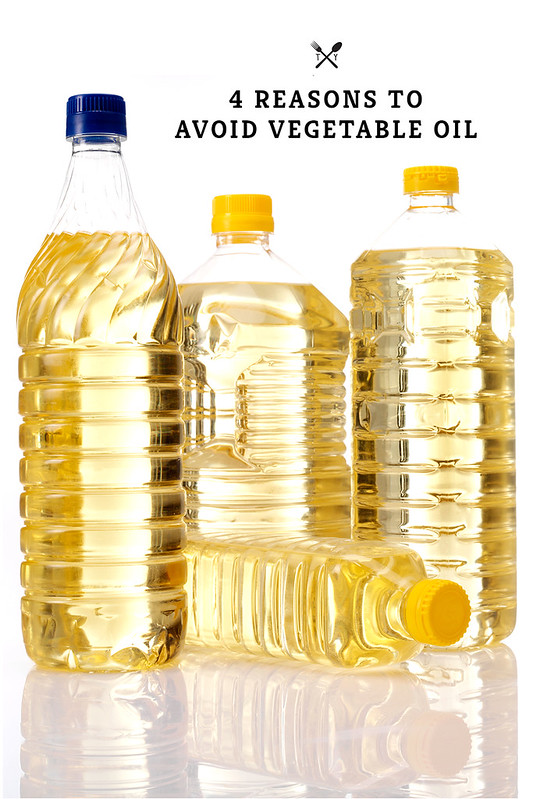
On the regular I find myself saddened and unpleasantly surprised by the lack of easily accessible, reliable information and data concerning food, nutrition and health. Truthfully, looking back, it’s amazing how little I myself knew, before I started down this long, self-initiated, ongoing path of nutritional education and empowerment of the past 10+ years. I am often reminded these days that I live in a bubble of sorts, surrounding myself virtually and otherwise with bloggers, healers, nutritionists and content creators whose lifestyles mirror my own. Reading books, listening to podcasts and following doctors and researchers creating and sharing important information and research about health and nutrition. I tend to forget and maybe I even take for granted, how much I do know and often I find myself making sweeping assumptions that everyone else knows most of it, too. I know for so many of you this post and this information is old news, it’s a rerun, you’ve heard it before. But if this post reaches even one new person, if I can send my new nutritional clients, who are still cooking with vegetable oils, here to learn more, then it’s a success!
As I enter the homes of my nutritional clients, as well as my close friends and family members, the number one thing I see among their food choices, that I immediately want to remove from their pantries and toss aggressively into the garbage: is vegetable and seed oils. In my opinion, vegetable oils are far worse than any overly refined carbs, white sugar or high fructose corn syrup. This deadly, Frankenstein-eque, lab-created “food” (if you can even call it that) is wreaking more havoc on people’s health than possibly anything else and sadly it’s being overlooked by so many. Much of this comes from Western medical practitioners who are woefully uneducated in nutrition or those whose nutritional education is sorely dated, built on antiquated and debunked health myths of previous generations. Or maybe it’s the fact that big food industry in our country has a large stake in corn and soy production and these have become, by far, the cheapest crops we are growing, thanks to government subsidies. Take a look at most packaged and processed foods and I can almost guarantee you will find one or both of these foods somewhere on the label.
The edible oil industry in our country, “Big Ag” and their marketing “geniuses” sought to demonize tropical oils and other saturated fats and in turn, in the same breath to promote their own vegetable oils, like corn and soybean oil. This great movement toward the excessive use of polyunsaturated fats and the demonization of saturated fats came with the advent of the “Lipid Hypothesis” — which featured fraudulent research made by a terrible scientist named Ancel Keys who made unsubstantiated claims that saturated fat and cholesterol were the cause of heart disease and ignored research and data that didn’t support his argument. We can see how well all that has gone!
The fats used in this study were hydrogenated, processed fats, known to be extremely irritating to the body, particularly the vascular system. Cholesterol acts as a healing agent to repair and protect the arteries and veins. Therefore, the more irritation, the more cholesterol will mobilize to save the day! Research now shows us that dietary cholesterol intake has VERY LITTLE to do with over all cholesterol levels, so this part of the theory was off target as well. Today, the Lipid Hypothesis continues to be promoted by most medical professionals and pharmaceutical companies, as well as the modern food processing giants, who profit from such flawed research. Saturated fatty acids from healthy sources nourish the vascular system, enhance immune function, protect the liver from certain toxins (including alcohol), aid in calcium absorption, and increase cellular membrane integrity. Keep in mind that heart disease was considered a rare condition before the 1920’s, but spiked dramatically from 1910 to 1970 as Americans began consuming less saturated animal fats and increasing amounts of vegetable fats in the form of margarine, shortening and adulterated, refined oils of all types. Our not-so-distant ancestors consumed healthy sources of saturated fats each and every day with no adverse health effects whatsoever! 1Fats: Safer Choices for Your Frying Pan and Your Health By Caroline Barringer, CHFS, NTP
After going through the Nutritional Therapy program at the NTA to become a certified Nutritional Therapy Practitioner I have found myself more inspired than ever to want to help people, to share what I know and to do whatever I can to help make a change in our health, our very broken food system and to empower people to make the very best choices for themselves and their families. So let’s start with one of the most important topics: 4 Reasons to Avoid Vegetable and Seed Oils!
What are Vegetable Oils?
Vegetable oils are oils that are extracted from seeds, germs or beans, such as corn, sunflower, safflower, soybean, or rapeseed (canola oil), etc. Non existent until the early-1900’s, vegetable oils are one of the most unnatural “foods” you can find. Vegetable oils are PUFAs, which stands for Poly-Unsaturated Fatty Acid. In chemical terms, that means that the fatty acid has more than one (poly) double bond in the carbon chain. They’re unsaturated because they’re missing out on what saturated fatty acid has — hydrogen atoms. In a sense, that makes the bonds sort of incomplete. So, imagine a chain of links that are sort of missing a joint or two, on each and every link — it wouldn’t be very strong or stable. These messed up and broken chains make for highly unstable fats that are prone to oxidation in the presence of heat and light, during cooking, sitting on the shelf in the grocery store or in your kitchen pantry and even in your body and they turn rancid, which our body reacts terribly to. Our body attempts to respond to and neutralize the oxidization by utilizing its stores of antioxidants. This oxidization process causes cell mutation, which we see in chronic inflammation, the source of most of the worst illness plaguing our society, cancer, heart disease, etc.
It’s really pretty simple. Because of their instability, and the negative effects on the body’s systems these oils have in excess, PUFA are just plain bad.
The most common vegetable oils on the market are:
- soybean oil
- canola oil (rapeseed oil)
- sunflower oil
- corn oil
- cottonseed oil
- “vegetable” oil
- safflower oil
- peanut oil
- grapeseeed oil
- rice bran oil
- margarine
- shortening (made from above oils)
- fake butter or spreadable butter-type spreads (I Can’t Believe it’s Not Butter, Earth Balance, Smart Balance)
Thankfully less and less people are cooking with these oils at home these days, however unfortunately it’s still not enough to just not buy these cooking oils at the store. Be aware that many/most processed foods contain these oils so you have to be sure to read labels. Salad dressings, condiments like mayo, sauces, crackers, cookies, chips… check your ingredients. You can also bet that most restaurants are cooking in vegetable oils, because they are so cheap! Unless a restaurant specifically states otherwise, their fried foods are all cooked in soybean, cottonseed or some other highly toxic vegetable oil.
(Note the term “vegetable oil” does NOT apply to healthy plant oils like olive oil or coconut oil, which are extremely healthful)
4 Reasons to Avoid Vegetable Oils
1) Vegetable Oils Contain an Unnatural Amount of Omega-6 Fats.
These oils contain very large amounts of biologically active fats called Omega-6 polyunsaturated fatty acids, which are harmful in excess. We often hear about the importance and healthfulness of Omega-3 fats, they are essential to our health, especially because our body cannot manufacture them on its own. But often this important fact gets neglected: as great as Omega-3s are for us, it’s more about the ratio of Omega-3 to Omega-6 fats that is critical to good health. The fat content of the human body is about 97% saturated and monounsaturated fat, with only 3 % polyunsaturated fats. Half of that three percent is Omega-3 fats, and that balance needs to be there, as well an abundance of Omega-3s doesn’t equate to being healthier, in fact the opposite is true. A little goes a long way, 1 teaspoon a day should suffice. The same goes for Omega-6 fatty acids. The Standard American Diet (SAD) contains far too many omega-6s and too little omega-3s, resulting in a grossly distorted omega fat ratio of nearly 19:1. The ideal ratio of omega-6 to omega-3 fats is 1:1.
Vegetable oils contain a very high concentration of Omega-6 fatty acids. These highly unstable fatty acids oxidize very easily when exposed to heat, light or oxygen. Omega-3 fatty acids have been shown to reduce inflammation and protect against cancer, however an imbalanced ratio of Omega-3 and Omega-6 fats have been linked to many types of cancers and a host of other problems. This 2004 study suggests that “Excessive amounts of omega-6 polyunsaturated fatty acids and a very high omega-6/omega-3 ratio, as is found in today’s Western diets, promote the pathogenesis of many diseases, including cardiovascular disease, cancer, and inflammatory and autoimmune diseases” 2http://www.csuchico.edu/grassfedbeef/research/documents/sources/Simopoulos%20omega3%20review%202004.pdf
As you’ve probably guessed, most Americans diets are higher in Omega-6 fatty acids and too low in Omega-3’s. Unfortunately the food manufacturers know this and often the labels on vegetables oils stupidly read “a good source of Omega-3s”– meanwhile the Omega-6s are so high this is just further exasperating an already huge problem. The advent of industrial, highly refined polyunsaturated fats in our diet is, without question, the single most prevalent change to our diet in recent history. We’re eating about the same amount of carbohydrates, about the same amount of protein, about the same amount of saturated fat, but over two-and-a-half times the amount of polyunsaturated fat, and climbing.3http://www.thankyourbody.com/vegetable-oils/
Read more about Omega-3/Omega-6 imbalances here and here.
2) Vegetable Oils are Unnaturally Produced, Highly Refined and Extracted Using Heat and Chemicals.
Vegetable oils were non-existent until the early 1900s. But with the invention of certain chemical processes and a need for “cheap” fat substitutions, the world of fat hasn’t been the same since.
Factory-processed PUFA oils are created through measures of high heat and extreme pressure, exposing the oil to all sorts of oxidative damage, polished off with a good dumping of chemical solvents to get every last bit of that profit-producing oil out of the seeds, or corn, or soy. Some of the chemical (usually hexane) remains, and yet another chemical is added to deodorize the rancid PUFA oil’s stench. In that process, the small amount of omega-3 present in oils like canola, actually transforms into trans fatty acid. And finally, carcinogenic BHT and BTA are added as chemical preservatives, since any naturally-occurring preservative substances, such as antioxidant vitamin E which were once naturally found in the food, have been thoroughly killed off in processing. 4http://butterbeliever.com/what-is-pufa/ Even organic expeller-pressed vegetable oils undergo tremendous processing and are exposed to heat and therefore oxidize easily resulting in a toxic food. Additionally, vegetable oils, if not organic, are likely derived from Genetically Modified Organisms (GMO’s), another important reason to avoid them.
Take a look at this video to see how commercial canola oil is made, check out this graphic representation of the process:
Or read this, an overly simplified version of the process of extracting canola oil:
Step 1: Find some “canola seeds.” Oh wait, they don’t exist. Canola oil is actually made from a hybrid version of the rapeseed (aka a cotton plant)… most likely genetically modified and heavily treated with pesticides.
Step 2: Heat the rapeseeds at unnaturally high temperatures so that they oxidize and are rancid before you ever buy them.
Step 3: Process with a petroleum solvent to extract the oils.
Step 4: Heat some more and add some acid to remove any nasty wax solids that formed during the first processing.
Step 5: Treat the oil with more chemicals to improve the color.
Step 6: Deodorize the oil to mask the horrific smell from the chemical processing. 5http://www.thankyourbody.com/vegetable-oils/
Of course, if you want to take your vegetable oils one step further, just hydrogenated it until it becomes a solid. Now you have margarine and all its trans-fatty wonder.
Cool! Sounds yummy! Now let’s just go ahead and compare that to butter…
Step 1: milk a cow.
Step 2: let cream separate naturally.
Step 3: skim off cream.
Step 4: shake until it becomes butter.
3) Vegetable Oils Contribute to Excess Inflammation and Free Radical Damage.
Polyunsatured Fats are very fragile and oxidize very easily. Free-radical forming oxidation of the PUFA happens when it is exposed to heat, light, or oxygen. This is pretty hard to avoid that when you’re cooking with these fragile oils and most restaurants exclusively use these oils not only for cooking, but for extreme high-heat frying! Scary. And get this, simply from exposure to light and moderate heat many vegetable oils are rancid before you even purchase them. Great!
A small amount of inflammation is necessary to the healing process that our body undergoes, which is why Omega-6s (from healthful sources) in the proper ratio to Omega-3s actually play an important role in our immune system and our body’s ability to properly and effectively heal. However, we all know that excess, inflammation leads to disease, diabetes and even cancer. Omega 6 fats not only fuel your body’s inflammatory pathways, but also reduce availability of anti-inflammatory omega 3 fats in your tissues, resulting in more inflammation. Excessive inflammation in the body from PUFAs happens because of the presence of free radicals formed in the processing of the industrial oils (like vegetable and canola), which renders them rancid. Free radicals are atoms with an unpaired electron floating around, which causes them to basically go nuts. These compounds attack cell membranes and red blood cells, and they even cause damage to DNA and RNA strands, leading to cellular mutations in the body’s tissues. In skin, it causes wrinkles and premature aging. In blood vessels, the buildup of plaque. In tissues and organs, it can set the stage for tumors to form. You get the idea. Free radicals are bad, bad news, and they’re ever-abundant in industrial PUFA oils.
4) Many Vegetable Oils are Hydrogenated and Can Be Filled with Trans Fats.
PUFA’s at their very worst when they are partially or fully hydrogenated. This chemical process takes place in factories and it’s used to make PUFA’s solid at room temperature and more “shelf stable”. Trans fat is the artery-clogging fat that is formed when vegetable oils are hardened to make margarine, vegetable shortening, and often vegan butters and cheeses, etc., as well. It is found in many other foods besides margarine and shortening, however, including fried foods like french fries and fried chicken, doughnuts, cookies, pastries and crackers. The process involves introducing small particles of toxic heavy metals that bond to the fat and then it is exposed to high heat. Structurally, trans fats are synthetic fatty acids; 14 of them are produced during the hydrogenation process. (They are not present in either animal or vegetable fats.) Trans fats prevent the synthesis of prostacyclin, which is necessary to keep your blood flowing. When your arteries cannot produce prostacyclin, blood clots form, and you may succumb to sudden death.6http://articles.mercola.com/sites/articles/archive/2014/12/02/trans-fat-harms-memory.aspx
What Oils Should You Be Eating:
- Coconut Oil
- Tallow/ Suet (beef fat)
- Lard/Bacon Fat (pork fat)
- Butter
- Ghee
- Goose, Duck or Chicken Fat
- Extra-Virgin Olive Oil*
- Avocado Oil*
- Palm Oil**
- Other fats (not necessarily for cooking, but essential to good health) include meats, eggs, dairy, and fish (nuts are also good in moderation as they have a high level of polyunsaturated fats).
* olive oil and avocado oil are both high in monounsaturated fats which are moderately stable so they are best used in non-heat or low heat, avoid extreme high-heat cooking. They are also great in salad dressings, homemade mayonnaise, for drizzling, etc.
** Please find from a trust-worthy and sustainable source for your palm oil. Today much of the palm oil is being harvested in horrific ways. When in doubt just stick with coconut oil.
Oils To Be Used Sparingly
The following oils are okay in moderation. Most contain high levels of Omega-6 fatty acids, so they shouldn’t be consumed freely and in excess. But they are considered natural fats, and do have health benefits. They are not great for high heat cooking, but acceptable in dressings, mayos, and other non-heat foods. Always look for organic expeller or cold-pressed forms.
- Walnut Oil
- Flaxseed Oil
- Macadamia Nut Oil
- Sesame Oil
For more information visit this post – Cooking Fats and Oils: Which to Include and Which to Avoid
How to Tell if an Oil is Chemically Processed: SIMPLY READ THE LABEL!!
AVOID all fats, oils and the products that contain them if the following processing terms are listed ANYWHERE on ANY food label:
- Refined
- Hydrogenated
- Partially-Hydrogenated
- Cold-PROCESSED (do not confuse this trick phrase with Cold-PRESSED)
INSTEAD, look for these safer processing terms on your fat/oil labels:
- Organic
- First-cold pressed or Cold-Pressed Expeller-Pressed
- Unrefined
- Extra Virgin
Note: These “safer” processing techniques help to retain the antioxidant profile found in fats through low- temperature, low-light and low-oxygen extraction methods. Naturally occurring antioxidants protect fats from oxidizing (turning rancid) during extraction. 7Fats: Safer Choices for Your Frying Pan and Your Health By Caroline Barringer, CHFS, NTP
Additional Resources:
http://www.ecowatch.com/dr-mark-hyman-why-vegetable-oils-should-not-be-part-of-your-diet-1882164589.html
http://articles.mercola.com/sites/articles/archive/2009/05/12/is-omega-6-more-important-than-omega-3.aspx
http://www.westonaprice.org/know-your-fats/skinny-on-fats/#modern
http://www.westonaprice.org/know-your-fats/some-additives-in-vegetable-oils
http://articles.mercola.com/sites/articles/archive/2005/06/28/vegetable-oils.aspx
http://articles.mercola.com/sites/articles/archive/2014/08/31/trans-fat-saturated-fat.aspx
Know Your Fats, by Mary G. Enig, PhD
References
| 1. | ↑ | Fats: Safer Choices for Your Frying Pan and Your Health By Caroline Barringer, CHFS, NTP |
| 2. | ↑ | http://www.csuchico.edu/grassfedbeef/research/documents/sources/Simopoulos%20omega3%20review%202004.pdf |
| 3. | ↑ | http://www.thankyourbody.com/vegetable-oils/ |
| 4. | ↑ | http://butterbeliever.com/what-is-pufa/ |
| 5. | ↑ | http://www.thankyourbody.com/vegetable-oils/ |
| 6. | ↑ | http://articles.mercola.com/sites/articles/archive/2014/12/02/trans-fat-harms-memory.aspx |
| 7. | ↑ | Fats: Safer Choices for Your Frying Pan and Your Health By Caroline Barringer, CHFS, NTP |
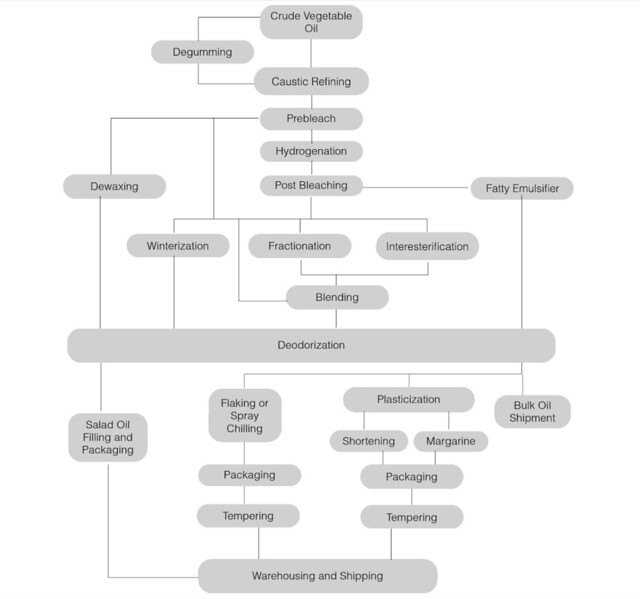

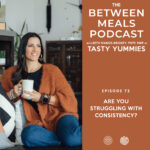
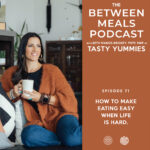
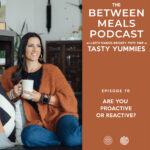


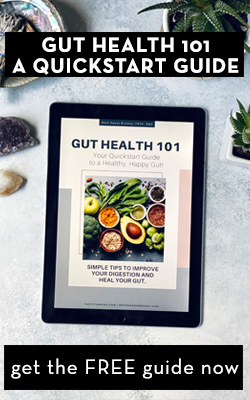
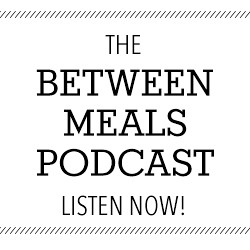



5 Responses
Amazing but scary article, thank you.
Thank you for breaking this down! This is so important and the more we know, the more power we have. I’m about to go scream “NO HYDROGENATED OILS” from the roof tops. Thanks for all your info:)
Thank you for this eye opening article. Can you recommend which oils would be good for high heat such as frying?
Wow you just taught me amazing things, I had know idea. Thanks.
That’s amazing. nothing makes me happier to hear! Thanks for the comment. xo